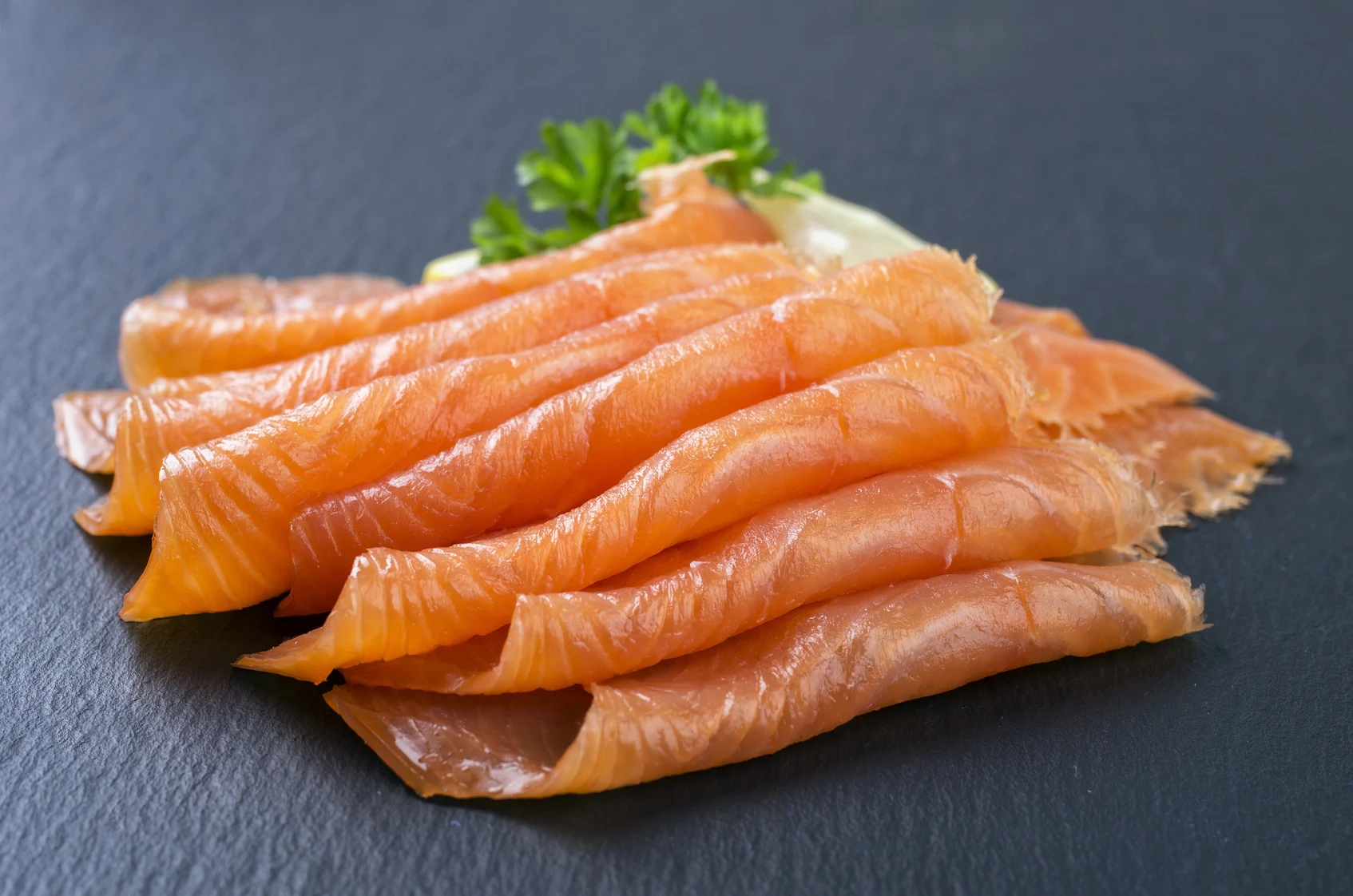
Smoked salmon is a delicacy in the kitchen. It might be silky smooth or flaky and delicate. It's full of flavor and adds just the right amount of saltiness to a variety of our favorite foods. But, before we start putting it on our avocado toast every day, let's take a closer look at whether it's a nutritious meal. It's time to receive answers to your smoked salmon queries.
What is smoked salmon?
Smoked salmon, like so many other cuisines throughout history, arose out of need. Not wanting to throw anything away, our forefathers realized that smoking fish not only increased taste but also kept it fresh. Fish was traditionally cured for days with massive amounts of salt then smoked for days or even weeks. Fortunately, we've refined our methods for smoking food throughout time, reducing the quantity of salt required and the amount of time it's exposed to smoke. As a result, the final product is more dependable.
There are two types of smoking methods: cold and hot. To eliminate moisture and preserve the fish, cold smoking normally comprises a salt cure followed by smoking at a low temperature of 80-85°F. This retains the texture of the salmon identical to that of raw salmon, resulting in a smooth texture. To "cook" the fish, hot smoking often employs a brining solution as well as a higher smoking temperature. This produces a flaky texture as well as a rich, smokey taste.
Smoked salmon's nutritional and health advantages
Salmon is usually always at the top of any list of nutritious foods. That's not unexpected given its nutritious profile and the extensive research that backs up its ability to nourish and prevent illness.
M.S., MPH, RD Jenny Shea Rawn agrees. She attributes salmon's celebrity status to its high fat content. She claims that the kind of fat is very important. "Omega-3 fatty acids are abundant in smoked salmon. These health-promoting essential fats provide benefits for people of all ages, with a focus on brain, heart, and eye health." Smoked salmon is also a high-protein food. A 3-ounce portion has 16 grams of protein, according to the USDA. B vitamins, generally known as the energy vitamins because of their involvement in metabolism, are also found in salmon. They aid in the conversion of food into energy that our bodies can utilize.
Yes, smoked salmon is a healthy dish, but don't overdo it because the salt content might be high. Consumers should study labels and compare brands, according to Shea Rawn. She also suggests that "Consider the salt content (of smoked salmon) while planning your other meals and snacks. Throughout the rest of your day, eat foods that are lower in salt." Shea Rawn suggests pairing cured and smoked dishes with lower salt and complete foods on rare occasions. "Choosing a range of seafood alternatives throughout the week—fresh, frozen, tinned, and smoked—is the key to receiving the maximum enjoyment and health benefits from seafood," Shea Rawn says.
What to Be Aware Of?
Hot-smoked salmon is a great choice for practically everybody because it is fully cooked and ready to eat. Pregnant women should prepare hot-smoked salmon to 165°F before eating it, according to standard guidelines. Cold-smoked salmon, which has not been fully cooked, poses a risk of foodborne illness, including listeriosis. Pregnant people, small children, elderly individuals, and those who are immunocompromised should not ingest it, according to the FDA.
What to Look for When Purchasing
If at all feasible, choose wild-caught smoked salmon over farmed salmon, which has a more robust nutritional profile and generally rates better in terms of sustainability. Although certain farmed salmons are regarded to be a sustainable option. Use a resource like Seafood Watch to help you identify more environmentally friendly solutions. Don't forget to look at the date to make sure the product isn't out of date. Choosing smoked salmon, according to Chef Kathleen O'Brien Price, is also a question of personal choice. "If you like a more flavorful fish, look for a naturally fattier type like king or sockeye. Colors range from orange-y pink to deep crimson, depending on the type." She also suggests picking products that aren't too densely packed and don't have a lot of moisture. When possible, choose salmon that has been freshly shaved off the full side, since it will be the freshest, advises O'Brien Price.
What is the best way to keep smoked salmon?
Smoked salmon can be stored in the refrigerator for up to two weeks in its original container, unopened. Refrigerate and use within one week after opening the packet to prevent it from drying out. Smoked salmon can be preserved in the freezer for up to three months if desired.
How can you make the most of it?
Smoked salmon may be enjoyed in a variety of ways (including our healthy recipes with smoked salmon). For a fast and tasty main dish, combine it with capers, lemon juice, olive oil, and whole wheat pasta. Use it as a pizza topper. Form your dough and drizzle it with olive oil and ricotta. Just before serving, sprinkle with fresh herbs and smoked salmon. "Simple is best!" declares Shea Rawn. Her family enjoys it on avocado toast, cream cheese and red onion bagels, as the centerpiece of a "sea"cuterie board, in power bowls and breakfast bowls, over eggs or omelets, in seasonal salads, sandwiches or wraps...or straight from the packet!
O'Brien Price agrees that smoked salmon on a bagel is a good combination. It goes well with balsamic vinaigrette, she says. "Because hot-smoked salmon may have a strong taste, it can withstand being cooked or reheated without losing its texture, making it perfect for egg scrambles and quiches," she says of whether to use hot-smoked vs cold-smoked salmon. For cold applications, she loves cold-smoked salmon because it is more delicate and smooth. "The flavor isn't always as strong, which makes it simpler to consume."